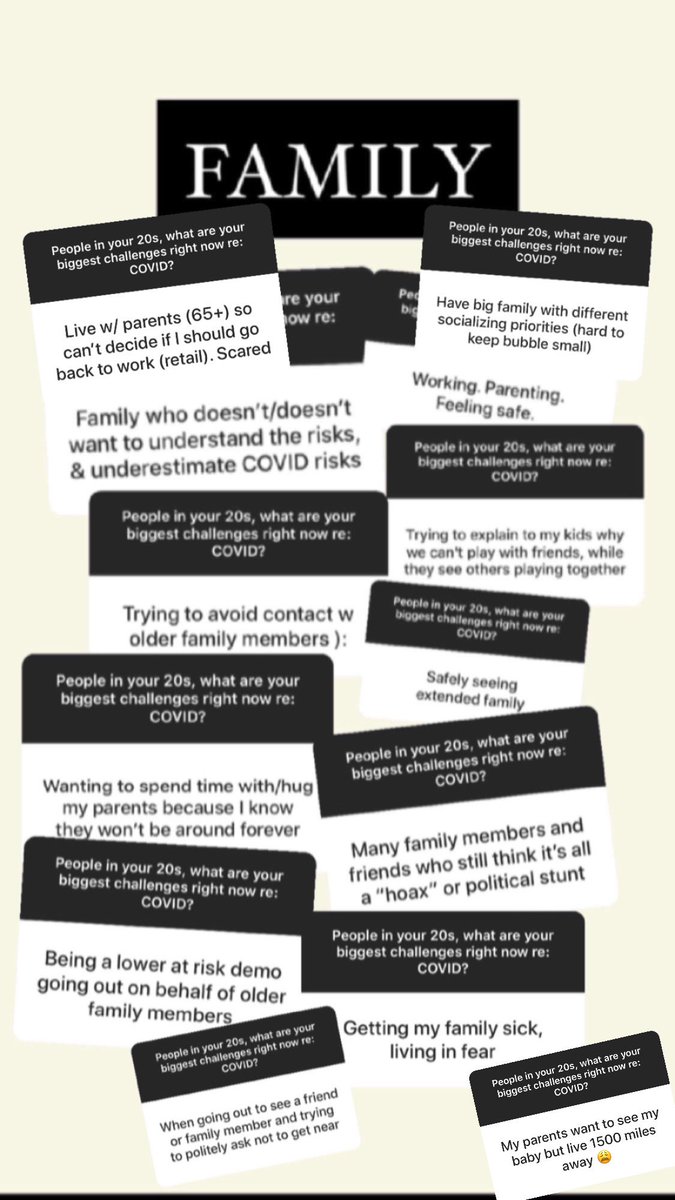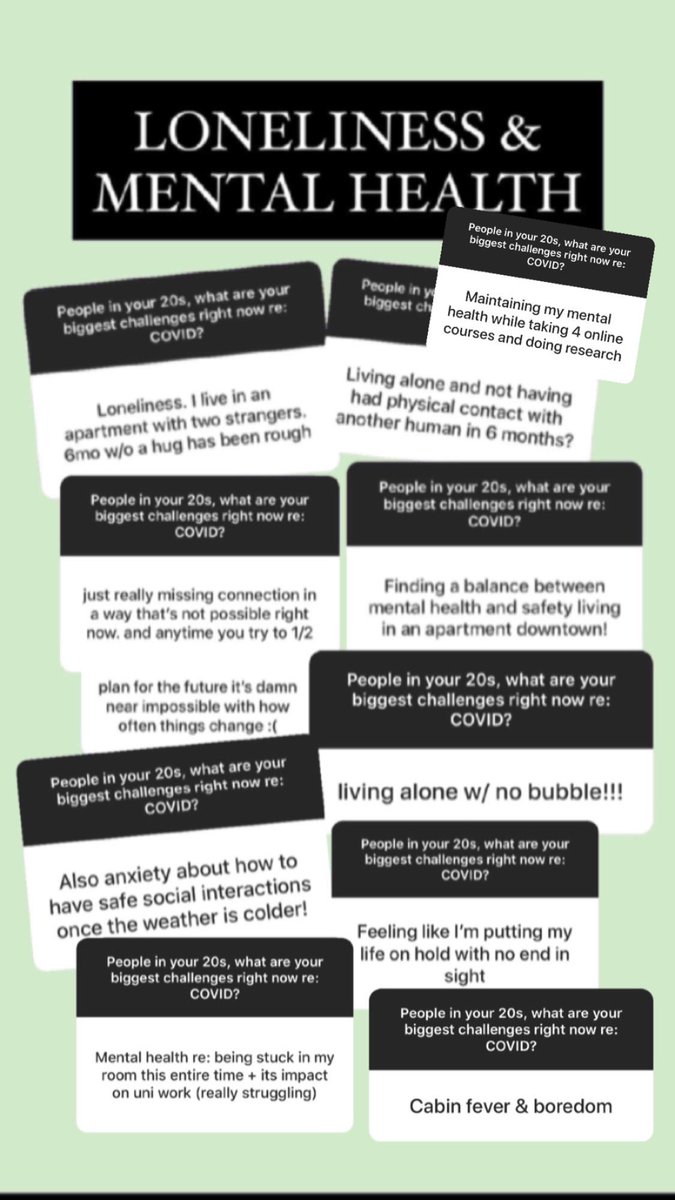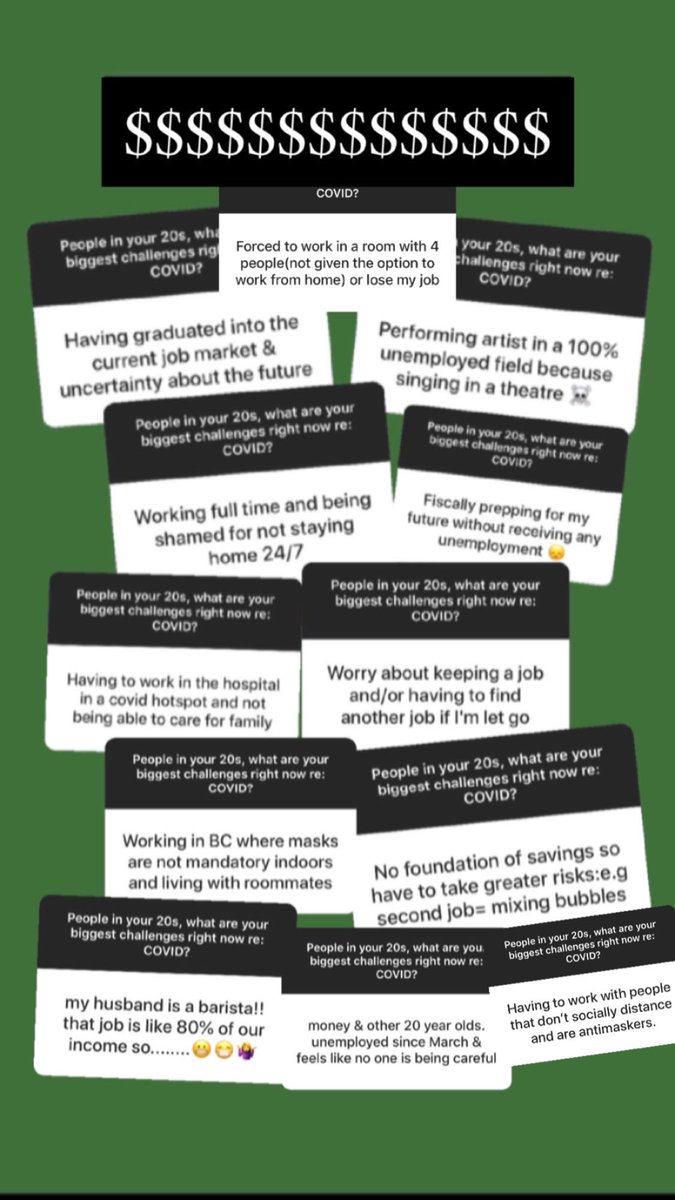🧵
People in their 20s are now disproportionately represented in new COVID-19 cases in Ontario.
Instead of shaming & blaming, I asked them what challenges they’re currently facing with respect to the pandemic.
After 100s of replies, some key themes emerged. Here they are:
People in their 20s are now disproportionately represented in new COVID-19 cases in Ontario.
Instead of shaming & blaming, I asked them what challenges they’re currently facing with respect to the pandemic.
After 100s of replies, some key themes emerged. Here they are:
Many people in their 20s mentioned peer and social pressure, plus general difficulty navigating behaviours of those around them as a major challenge during the pandemic. 

Difficulty seeing or isolating from family was cited as a key challenge folks in their 20s are facing.
This one is big given data from France suggesting cases in young people eventually spread to older folks in 3-5 weeks.
This one is big given data from France suggesting cases in young people eventually spread to older folks in 3-5 weeks.

Unsurprisingly, school was another major challenge people in their 20s are facing that’s forcing them to be non-compliant to general safety guidelines.
This applies to those who are students and teachers.
This applies to those who are students and teachers.

Many people in their 20s live in shared housing, meaning it’s hard to maintain a bubble or truly limit their close contacts. 

Loneliness & mental health was another major challenge folks in their 20s are facing during the pandemic.
Contrary to popular belief that 20-somethings are reckless, quite a few replies they’ve had next to no physical contact the last 6 months, which is quite worrisome tbh.
Contrary to popular belief that 20-somethings are reckless, quite a few replies they’ve had next to no physical contact the last 6 months, which is quite worrisome tbh.

Money and the need to work is a key driver in any demographic, but the people in their 20s I asked self-report added challenges of unsafe and unregulated workplaces with little job security. 

Some less frequent but still important mentions for challenges faced by people in their 20s: dating, fatigue & frustration, confusion on public health guidelines, and transportation. 

This wasn’t a scientific survey, but I hope these anecdotes help ppl rethink their assumptions about COVID spread amongst 20-somethings.
And importantly, to redirect our rage where it belongs: at government & public health officials making contradictory & confusing guidelines.
And importantly, to redirect our rage where it belongs: at government & public health officials making contradictory & confusing guidelines.
Also sorry the graphics are 🥔 quality. Believe it or not they took me 2 hours because Instagram limits how you can share replies so I had to save multiple copies of the same jpeg over and over. But hopefully you get the gist!
PS. If you do actual research on this topic, please DM me!
A lot of journalists are now reaching out and I'd love to connect them with people doing real studies on this!
A lot of journalists are now reaching out and I'd love to connect them with people doing real studies on this!
👇🏼👇🏼👇🏼 here’s the thread on this topic I didn’t write at 2am 😅
https://twitter.com/heysciencesam/status/1306281777372303360
• • •
Missing some Tweet in this thread? You can try to
force a refresh






